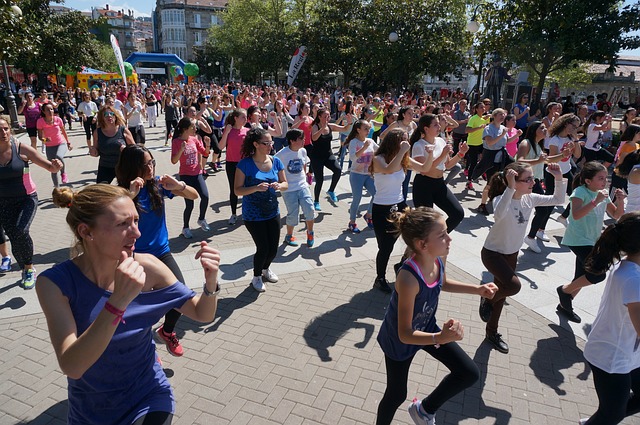Walking is a fundamental human activity that we often take for granted. It’s a simple, low-impact exercise that requires no special equipment, yet its health benefits are far-reaching and profound. From improving cardiovascular health to boosting mental well-being, the science behind walking reveals a treasure trove of advantages that can positively impact our overall quality of life.
In this article, we will delve into the surprising health benefits of walking and explore the scientific evidence supporting this accessible form of exercise.
- Cardiovascular Health
Regular walking has been shown to be highly beneficial for cardiovascular health. It helps improve circulation, reduce blood pressure, and lower the risk of heart disease and stroke. Walking at a brisk pace raises the heart rate, promoting better blood flow and strengthening the heart muscles.
- Weight Management
Walking can be an effective tool for weight management and weight loss when combined with a balanced diet. It helps burn calories and increase metabolism, making it an excellent exercise for those looking to shed extra pounds or maintain a healthy weight.
- Joint and Bone Health
Contrary to popular belief, walking is a low-impact exercise that can actually benefit joint and bone health. Regular walking strengthens muscles around the joints and promotes better joint mobility, reducing the risk of arthritis and osteoporosis.
- Mental Well-Being
The benefits of walking extend beyond physical health; it also plays a significant role in promoting mental well-being. Walking triggers the release of endorphins, which are natural mood elevators that help reduce stress, anxiety, and symptoms of depression.
- Cognitive Function
Studies have shown that walking can positively impact cognitive function and brain health. It has been linked to improved memory, attention, and creativity. Engaging in regular walks may even help reduce the risk of age-related cognitive decline.
- Immune System Support
Walking can bolster the immune system, making us more resilient to infections and illnesses. Moderate exercise like walking has been associated with enhanced immune responses, leading to better overall health.
- Energy Boost
Rather than sapping energy, walking actually boosts energy levels. Taking a brisk walk during the day can help fight feelings of fatigue and increase alertness, leading to improved productivity and focus.
- Sleep Quality
Walking can contribute to better sleep quality. Engaging in regular physical activity like walking has been linked to improved sleep patterns, helping individuals fall asleep faster and enjoy more restful sleep.
- Social Connection
Walking can be a social activity, encouraging individuals to walk with friends, family, or in group settings. Social interactions during walks provide emotional support, reduce feelings of isolation, and contribute to a sense of community.
- Longevity
Research suggests that regular walkers tend to live longer and have a reduced risk of chronic diseases. Incorporating walking into your daily routine may contribute to a longer, healthier life.
The science behind walking leaves no doubt about its impressive health benefits. This simple and accessible form of exercise can improve all aspects of your health. With the potential to strengthen bones, improve cognitive function, and promote better sleep, walking is a versatile activity that positively impacts our overall quality of life. Whether you take a leisurely stroll or a brisk walk, the benefits of this underrated exercise are truly surprising and, without a doubt, worth embracing in our daily lives. So, lace up your shoes and step outside – your health and well-being will thank you for it!
Image by Daniel Reche from Pixabay
Fitness
-

How to Hydrate Properly for Muscle Health
Proper hydration is crucial for overall health and plays a vital role in supporting muscle function and development. Muscles are composed of a significant amount of water, and maintaining adequate hydration levels is essential for optimizing muscle performance, preventing muscle cramps, and supporting muscle recovery. In this article, we explore the link between hydration and…
-

Try Aerobics for Overall Health, Fitness, and Fun
-

Mindful Running: How to Incorporate Mindfulness and Mental Focus into Your Running Routine
-

Proper Running Form and Techniques – How to Boost Your Performance and Prevent Injuries
-

How to Start Running Today for Health and Fitness
-

Unleashing Your Strength: Exploring Resistance Training and Its Various Types
-

How to Build Muscle Mass – From Strength Training to Protein-Rich Foods









Leave a Reply